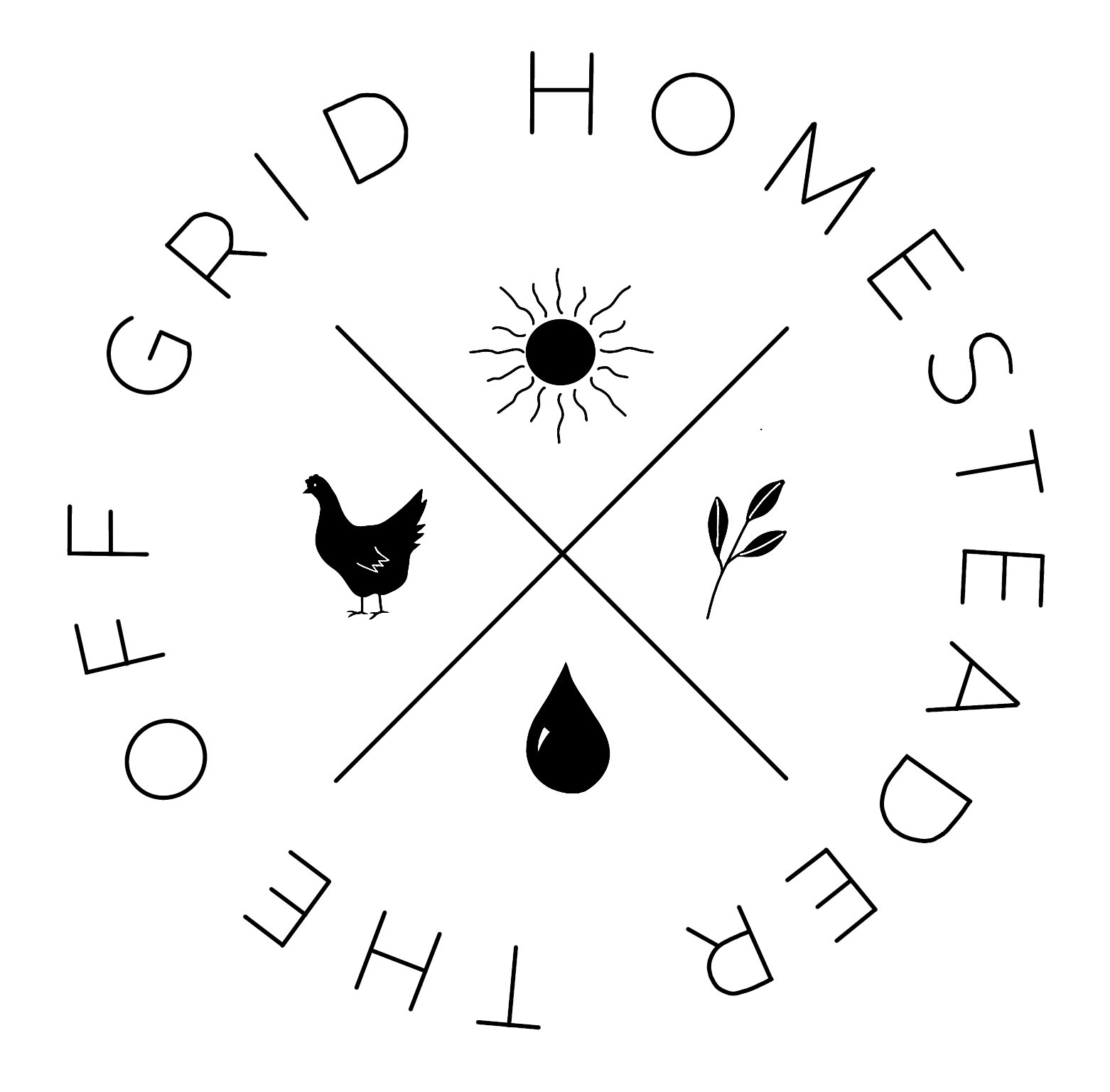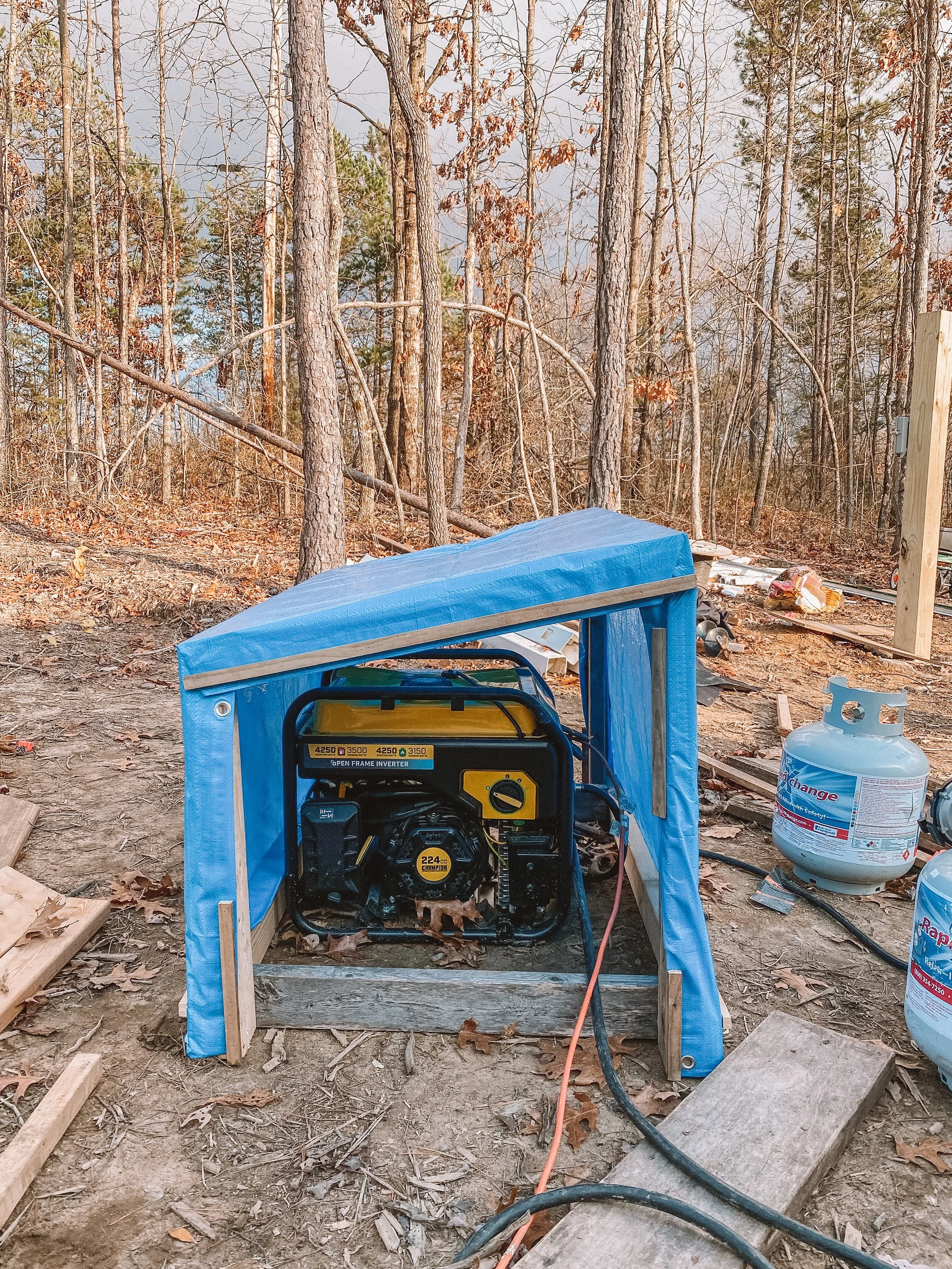Everything You Need To Know About Portable Generators
We recently moved onto 5 acres of raw land from a big city. We are converting a 12 X 32 shed into our home and building our homestead from scratch. We moved onto our land with zero utilities and now we thankfully have internet. We are staying in our friends' camper while we convert our shed into a home. We knew we were going to need a source of power before we have a chance to get our solar system set up, so I started researching portable generators. The information is overwhelming and full of terms I knew nothing about. While I am certainly not an expert in generators now, I have a few of the basics down so I wanted to share those with you.
There are several different types of generators. For the information I'm providing today I'll only be referring to portable generators- not the ones that you can have permanently installed in your home in case the power goes out. So what exactly do you need to consider when picking out a generator?
If you’d prefer to consume this info in video form, click above!
1. Fuel Type. There are generators powered by gas, diesel, propane, natural gas, and/or solar. You can get generators that can be powered in multiple fuel types, those are called dual fuel or tri fuel. We wanted a dual fuel generator, which is usually gas or propane, because we wanted to have options. In a shit hitting the fan type of situation, we wanted to not be stuck with a gas powered generator. Gas can be hard to come by in those times, and you can also more easily and safely store propane. Another benefit to running your generator on only propane is that you don't have to worry about the gas clogging up the carburetor. This is more of an issue if you don't regularly use your generator and only use one for emergencies. If there is gas left in a generator over an extended period of time without being used, it will clog the carburetor. When you go to start it, it won't start.
Dual Fuel generators are more expensive than gas powered ones. I've seen very few tri fuel options, and that is having the option to use natural gas, propane, or gasoline. Solar generators are cool and we love our Jackery. However, they are the most expensive for the amount of power you get. They are great because you can use them indoors. All of the other generators are FATAL if used indoors. DO NOT USE GENERATORS INSIDE. They release carbon monoxide and can kill you in minutes. So if you want to be able to use one inside, then the solar generators are great. When we travel in our van it is entirely powered by our Jackery 1000. The solar generators can be powered by solar panels but you can also charge it when you actually have a power source. It's nice to have both options. And depending on how much you want to be prepared- it's a good idea to have multiple power source options.
2. Inverter or No Inverter. There are also inverter generators which I'm going to be honest, I don't fully understand the technology behind. What I do know is that they are safe to plug your more sensitive electronic devices in (computers, TV, etc). A non-inverter generator can have variable surges of power which can blow and ruin those more sensitive devices. They are also a lot more quiet than the other types of generators.
3. Open Frame vs. Closed Frame. Then there are open frame and closed frame generators. Closed frame is the most quiet but also more expensive than the open frame. The difference is literally just the way the motor and all of the parts are housed. On the open frame ones you can see all the little parts that make up the generator and they are all easier to get to. On a closed frame generator you can’t easily get to most of the parts. The closed frame inverter generator is the quietest and most lightweight of all non-solar powered generators.
4. How Much Power Do You Ned? Something else you have to think about it how much power do you need? You will need to figure that out before buying your generator. There is no sense in buying a really expensive high wattage generator if you are just going to be using it to charge you iPhone and laptop. You will see the terms surge watts and running watts. When you first turn on an electronic device it will take more power so you need to know what it's surge wattage is. If it takes 100 watts to run but 250 watts to start, that is something you need to take into consideration. It is a good idea to do a power audit to see what all you will be wanting to run on your generator. This can help you figure out what kind of power you really need.
5. Types of Plug-ins. If you ned to run a camper or an entire house, you are going to need a specific plug for that. The camper we live in uses a 30 AMP plug, which is pretty common. But not all generators have a 30 AMP port. If you get a generator that is about 2000 watts or less, it will not have a 30 AMP plug. A standard plug/ extension cord is 20 AMP and that is what the smaller generators have. If you aren’t running an air conditioner or a massive heater, a 20 AMP plug could certainly be enough.
5. Electric vs manual vs remote start. In a dream world the generator you want would come with an electric or remote start and that would fit into your generator budget. A manual start generator is started like a chainsaw or a push lawnmower, so you pull the string. If you've ever done that before, it's a not a fun task. The start on our generator is really not that bad (it’s a pull start) as it starts the same every time. We don’t usually have a problem with it starting, but sometimes you really don’t want to go outside and start it. An electric start has a button that you just push and it starts. Like an on/off switch. The most luxurious option of them all is the remote start. You could be sitting in your camper and start up your generator with a remote. That is one thing we really would’ve loved to have but it adds so much to the cost. We just couldn’t justify it for ourselves and our budget!
Taking all of this into consideration we knew we personally wanted an inverter generator that was dual fuel. We wanted a closed frame but settled for an open frame model. We also wanted an electric start but sacrificed that to save money. We ended up purchasing the Champion 4250 watt dual fuel inverter generator from Amazon. We just bought another generator (it’s a WEN 2000 watt gas-powered inverter generator) as our generator is too large for us at certain times. We literally just got it yesterday so we haven’t even used it. We will definitely do an update in the future when we have used it for a while. But the Champion generator has served us well! We have followed instructions and been able to keep it working very nicely.
6. Safety Concerns. Again, do not operate a generator anywhere near your home and it should be at least 20 feet away from doors, windows, or any openings.
If you want a generator for power outages, have an electrician connect it to your power supply. This is the most safe option.
If you don’t have your generator hooked up to your main power supply and you are using extension cords, make sure the extension cord is heavy duty, rated for the outdoors, and can handle the amount of wattage it needs.
Generators need to be grounded, so follow the manufacturers instructions on how to do this. This is also something an electrician can do foryou.
I hope that this information breaks some of the overwhelming information down. I also have a You Tube video all about this topic. Generators can feel way over your head when you haven’t owned one before. It was a whole new world for us! Leave a comment if you have any questions about your future generator purchase and if you have a generator you love, we’d love to hear about that too! Thanks for reading.








